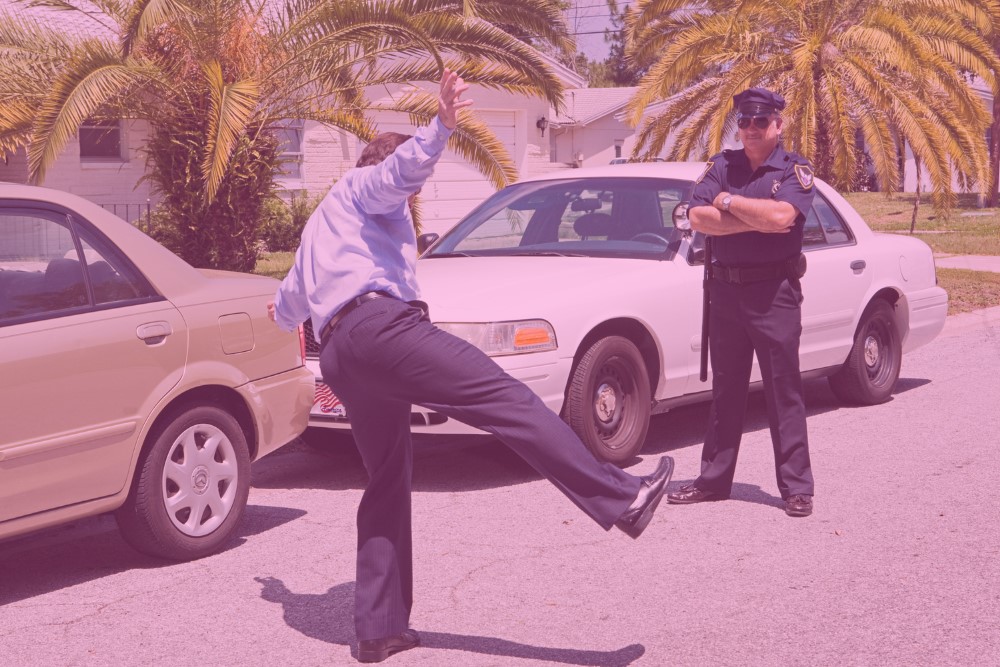In Western Australia, a person who is caught drink driving may receive an infringement notice and incur demerit points, or they may be summoned to attend court. Drink driving offences are punishable by significant fines, terms of imprisonment and periods of licence suspension.
The Road Traffic Act 1974 contains the penalties for different drink driving offences in Western Australia.
First offence
In WA, when a person is caught drink driving for the first time, they will generally receive an infringement. However, if the person is recorded with a blood alcohol content (BAC) of more than 0.08, they will have to go to court.
A person who is caught drink driving for the first time and has a BAC of under 0.08 in WA will receive a fine of $1000. They will also accrue three, four or five demerit points depending on the BAC recorded.
BAC of over 0.08
A person who records a BAC of 0.08 or higher will receive an automatic licence disqualification until a court finalises the matter. The offender will receive a fine and a disqualification period, which will depend on the BAC reading.
Court-issued penalties for drink driving
A person who is caught drink driving will be required to attend court if:
- they record a BAC of over 0.08;
- it is their second or subsequent drink driving offence.
The penalties that apply to drink driving matters that are dealt with by the court are set out in detail here. Court-ordered penalties for drink driving include significant fines and lengthy periods of licence disqualification. Terms of imprisonment may also be imposed in serious cases.
Driving under the influence (DUI)
Driving under the influence of alcohol and/or drugs is also an offence in Western Australia. This offence does not require a driver to record a particular BAC. It requires only that the person drove or attempted to drive a motor vehicle while under the influence of drugs to such an extent as to be incapable of having proper control of the vehicle.
This offence can attract a significant fine, period of licence disqualification and even a term of imprisonment, depending on the offender’s driving history.
Interlock orders
In WA, when a person is found guilty of a drink driving offence and has a prior conviction for a drink driving offence within the previous five years, they will be subject to an alcohol interlock condition after the conclusion of their period of disqualification from driving.
An alcohol interlock condition requires the driver to have their vehicle fitted with an alcohol interlock device at their own expense. The device prevents the car from starting if alcohol is detected on the driver’s breath.
A person who is found guilty of DUI, failing to provide a breath sample of dangerous driving causing harm where alcohol or drugs were a factor will also be subject to this condition.
Pleading guilty to drink driving in Western Australia
When a person is charged with drink driving in Western Australia, they may want to finalise the matter swiftly by pleading guilty. In some cases, though, it is advisable to adjourn a drink driving matter in order to seek legal advice and gather supporting documentation to provide to the court.
A person who pleads guilty to drink driving offences may want to provide the court with evidence that they have:
- taken steps to address any underlying drug or alcohol issues
- been of prior good character
Character references from people who know the accused and are aware of the charges against them may be helpful to establish that the person is of prior good character.
Pleading not guilty to drink driving in Western Australia
When a person is charged with drink driving offences, they may want to plead not guilty. This may be because they dispute the facts that are alleged or because they believe they have a legal defence to the charge.
Factual bases for contesting a drink driving offence include:
- that the BAC reading was incorrect;
- that the accused was not the driver of the vehicle.
Legal defences to a drink driving charge include:
- that the accused was driving because of an emergency situation (for example, to get a seriously injured person to hospital);
- that the accused became intoxicated involuntarily (in other words, they were forced or tricked into becoming intoxicated by another person).
It is important to note that a person does not have a defence to a drink driving charge simply because they were mistaken about the amount of alcohol they had consumed, what the legal limit was or what their BAC was.
If you require legal advice or representation in any legal matter, please contact Taylor Rose.




